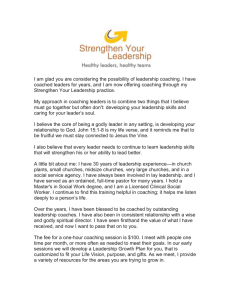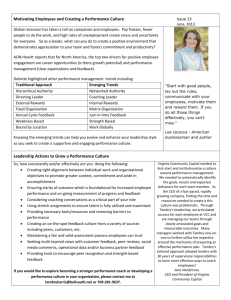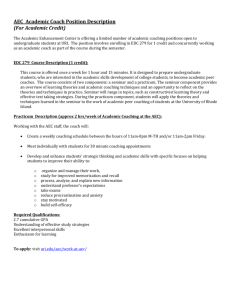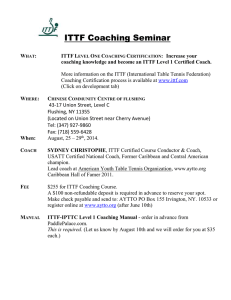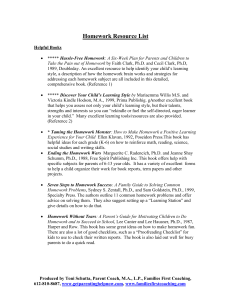HOW TO BE A TEAM COACH Some Practical Ideas On How To Coach
advertisement
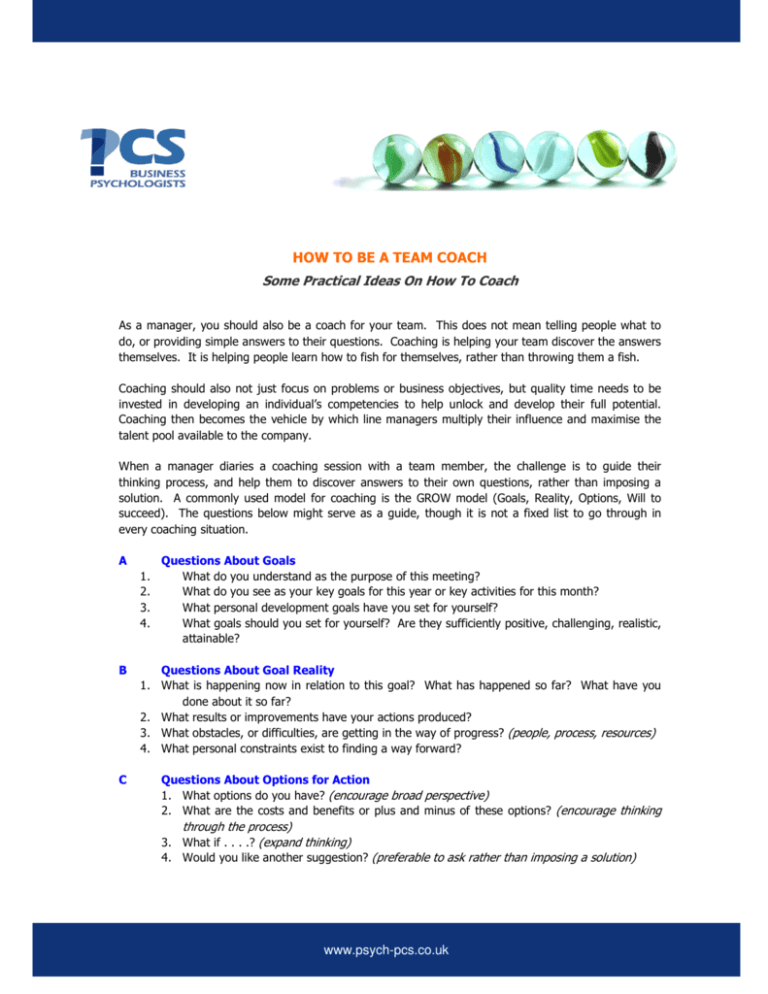
HOW TO BE A TEAM COACH Some Practical Ideas On How To Coach As a manager, you should also be a coach for your team. This does not mean telling people what to do, or providing simple answers to their questions. Coaching is helping your team discover the answers themselves. It is helping people learn how to fish for themselves, rather than throwing them a fish. Coaching should also not just focus on problems or business objectives, but quality time needs to be invested in developing an individual’s competencies to help unlock and develop their full potential. Coaching then becomes the vehicle by which line managers multiply their influence and maximise the talent pool available to the company. When a manager diaries a coaching session with a team member, the challenge is to guide their thinking process, and help them to discover answers to their own questions, rather than imposing a solution. A commonly used model for coaching is the GROW model (Goals, Reality, Options, Will to succeed). The questions below might serve as a guide, though it is not a fixed list to go through in every coaching situation. A 1. 2. 3. 4. Questions About Goals What do you understand as the purpose of this meeting? What do you see as your key goals for this year or key activities for this month? What personal development goals have you set for yourself? What goals should you set for yourself? Are they sufficiently positive, challenging, realistic, attainable? B Questions About Goal Reality 1. What is happening now in relation to this goal? What has happened so far? What have you done about it so far? 2. What results or improvements have your actions produced? 3. What obstacles, or difficulties, are getting in the way of progress? (people, process, resources) 4. What personal constraints exist to finding a way forward? C Questions About Options for Action 1. What options do you have? (encourage broad perspective) 2. What are the costs and benefits or plus and minus of these options? (encourage thinking through the process) 3. What if . . . .? (expand thinking) 4. Would you like another suggestion? (preferable to ask rather than imposing a solution) www.psych-pcs.co.uk D Questions About Will to Succeed 1. 2. 3. 4. 5. What do you now plan to do? When will you do it? How confident are you that you can meet this goal? (how confident in percentage terms) What will stop or prevent it from happening? (reality check) Does anyone else need to know? What support do you need? Can you visualise what success or failure would look like? Can you describe what would have happened? How would we recognise success? 6. Can you rate yourself on a 1-10 scale on the likelihood of carrying out this action? www.psych-pcs.co.uk







